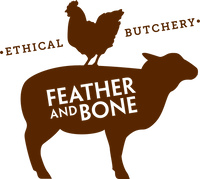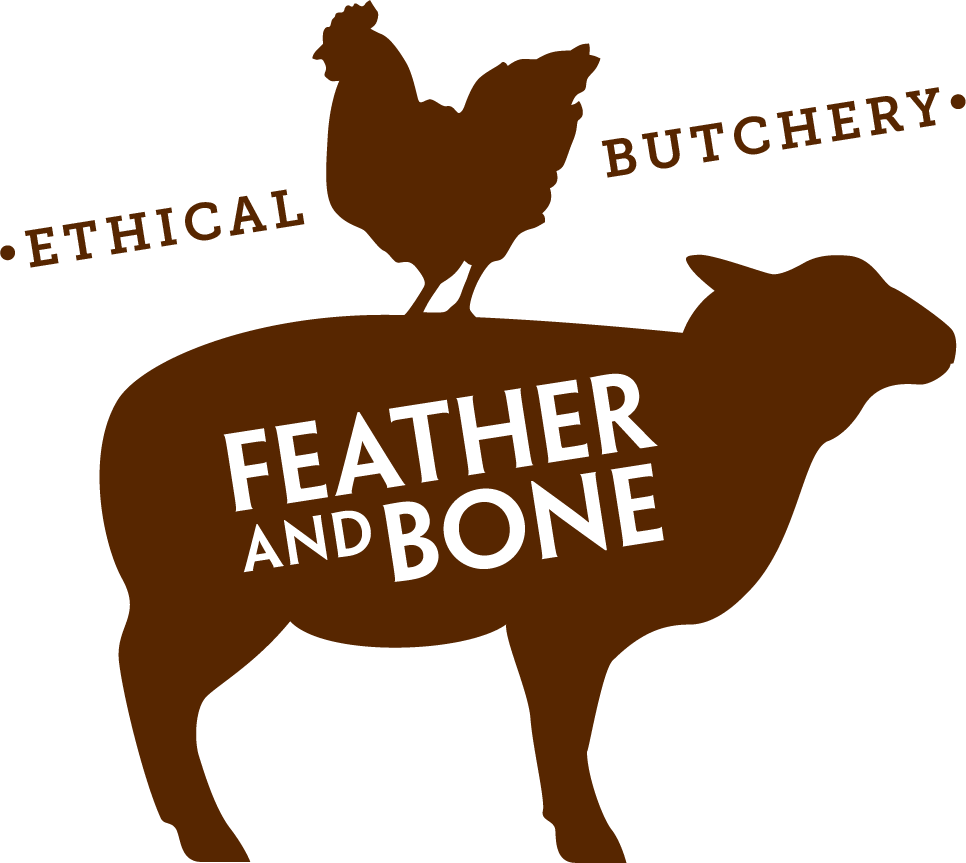
Going against the grain: fire, drought and grain-feeding at Gundooee
For those of us snug in our urban cocoons, bush fires are scary and distant. Each year, in summer, our devices flare and spark with dramatic news reports about bush fires and we alternate between feeling shakily impotent in the face of nature's ferocity, relieved that we're not in the line of fire and deeply distressed on behalf of those suffering. Then it all dies down and we don't give it another thought until the next season. But, of course, that's not the case for those dealing with the aftermath.
Gundooee organic Wagyu farmer, Rob Lennon, lives with a ghost.
It's there with him every day; in his soil, in his distant, agisted cattle, in the kilometres of destroyed fencing and other infrastructure that still needs to be replaced, in the crunch of dry stubble under his boot and, most insistently, in the thick charcoal that clads all his trees and insinuates itself onto every surface of the farm. It takes decades for new trees to grow and mature so, for the rest of his life, every time Rob collects firewood or cuts a wooden post, he will be covered with black soot. He'll never be free of the ghost of the St Ivans fire that tore through his farm in February 2017.

We wrote a report about the aftermath of the fire and initiated a unique offer: 'we're proud to be slow' to support Rob.
Before the St Ivans fire, the region was already drying up and regenerative farmers like Rob Lennon and the Kisses at Grassland were implementing drought harm minimisation strategies such as selective de-stocking and pasture closures. But, for Rob, no amount of smart drought-proofing over decades could offset the disaster of losing all his feed during a drought. The rain he desperately needed to regenerate his pastures after the fire never eventuated.
For the last ten years, we've been buying Rob Lennon's excellent, pasture-fed and finished, organic Wagyu beef at the rate of up to three carcasses per month. That's more than 400 animals and many seasons, both bountiful and achingly sparse.
Throughout it all, no matter the challenge, Rob's smart regenerative management, resourcefulness and irrepressible optimism has allowed Gundooee to survive, thrive and continually produce excellent beef.
But the last 18 months have been unusually tough and it's testament to Rob's character and the long-term commitment to sustainable management that both he and his cattle are still standing. More than that, though, good genetics and good management mean that, even now, the quality of Rob's beef hasn't decreased at all.
Going against the grain: feeding grain to ruminants
However, one of the adjustments that the season has forced Rob to make is to include some grain in the feed of his erstwhile entirely pasture-fed and finished cattle.
This question of feeding ruminants grain is a difficult one. Since we started 11 years ago, Feather and Bone have always been committed to sourcing and selling ruminants that are pasture-fed and finished and not the product of grain-fed regimes. It's a cornerstone of our practice and a big factor in our appeal to our customers.
But there are some circumstances (including drought or other severe weather events that limit the supply of feed) where a component of grain is necessary to ensure the well-being of the animal. As the drought bites harder, many of the farmers with whom we work are resorting to feeding their ruminants grain.
We will always prioritise farmer, land and animal welfare over a slavish commitment to a particular practice. Rather than penalising these farmers by refusing to buy their produce because it's not exclusively pasture-fed, we will show our support by buying as much of their produce as we can.
Gundooee Farm has been certified organic for many years and Rob has always been stalwart in feeding and finishing his Wagyu cattle on diverse, sustainably-managed pasture. But drastic times call for drastic measures. Below is a report that Rob Lennon sent us this week to explain what's happening at Gundooee.
Information for consumers of Gundooee Organic Wagyu beef re current drought-feeding
The take-home message is that despite the prolonged and horrific dry climatic conditions across the state and beyond, Gundooee Organics has been fairing relatively well in regards providing quality and organically-certified feed for the cattle.
- In late May (just prior to the commencement of calving), the 86hd of F1 breeding cattle were trucked to certified organic pastures in Roma (southern Queensland)…where they will remain for an undisclosed period of time.
- As at 30th June (being the last day of our organic audit period), the 120hd of F2 sale cattle (which have remained on Gundooee) had consumed less than 1% of their annual dry-matter intake in the way of uncertified fodder…and this was mostly hay (so grain was about 0.1%).
- To date, the grain ration has been increased to about 1%, but is fed out after being soaked in water for at least 24 hours - this aids digestion immensely, and the cattle are more-able to safely and comfortably consume this amount.
- The grain we purchase for these emergency situations is as organic as possible - we go beyond the standard requirements and source (from a local supplier) grain which has not been sprayed ‘in-crop’.
- When storing grain on farm, we add elemental sulphur, diatomaceous earth and lime (as the grain enters the hopper at the base of the auger which feeds the silo) for the control of grain weevil - no prohibited substances are added for storage.
- Half the hay we had on hand prior to the commencement of hand feeding in mid-May was certified organic.
- Our hand-feeding during droughts like this is kept to a minimum, and primarily as a result of conservative stocking rates and early drought decisions.
I hope these points above are of assistance to you and the consumers, and please call me if you require further information or clarification. I also urge all our stockists to open conversations with their customers - we have nothing to hide, and this information will be much better out there than potential mis-information.
Kindest regards for now,
Rob.
The photos here were taken by Mr Bone when he visited Rob at Gundooee at the end of July as part of his recent farm trip. You can see Rob chain sawing charcoal-covered timber and his cattle feeding on 24 hour-soaked grain.

Comments
Thank you F&B for supporting conscious farmers like Rob. Thank you Rob for your commitment, tenacity and keeping us informed.

